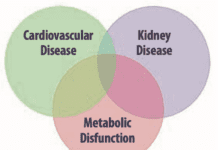Answer : A The concern about flaxseed oil-and, to a much lesser extent, canola oil-stems from the alpha-linolenic acid (ALA) content of these oils. According to the National Library of Medicine and National Institutes of Health, Researchers are still trying to fgure out the role of alpha-linolenic acid in prostate cancer. Some studies suggest that alpha-linolenic acid may increase risk or make existing prostate cancer worse, but other stud- ies fnd no connection. Nevertheless, the alpha-linolenic acid in flaxseed oil doesnt seem to be a problem. Alpha-linolenic acid from plant sources, such as flaxseed , does not seem to affect prostate cancer risk, although alpha-linolenic acid from dairy and meat sources has been linked in some studies with prostate cancer.
A large 2006 study published in Cancer Causes and Controls concluded, In this prospective study of predominantly Cau- casian men who were screened annually for newly incident prostate cancer, dietary intake of total ALA and ALA from specifc food sources was not associated with risk of total prostate cancer or prostate tumors that were defned by stage and grade. A systematic review of previous studies- some of which had found a link between ALA intake and increased prostate-cancer risk-published in the American Journal of Clinical Nutrition concluded, Studies examining the relation between ALA and prostate cancer have produced inconsistent fndings. High ALA intakes or high blood and adipose tissue [fat] concentrations of ALA may be associated with a small increased risk of prostate cancer. However, these conclusions are qualifed because of the heterogeneity across studies and the likelihood of publication bias.
About 55% of the fatty acids in flaxseed oil are alpha-linolenic acid. Canola oil, at about 10%, and soybean oil, at about 8%, are much lower in alpha-linolenic acid. Given the heart-health benefts of canola oil-when used in place of solid fats such as butter-theres little reason at this point to avoid it and good reasons to make canola oil your go-to cooking choice.























